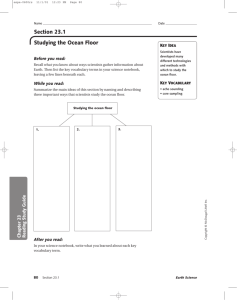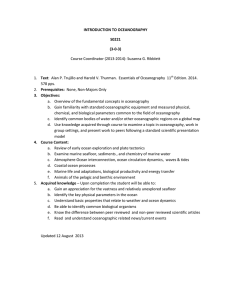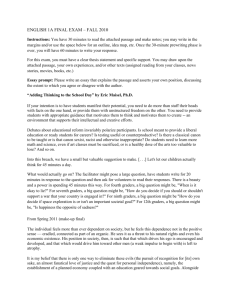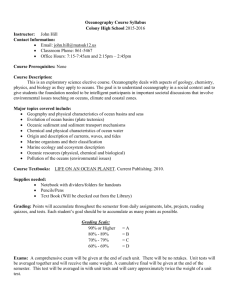Providing training in ocean observations for developing country
advertisement
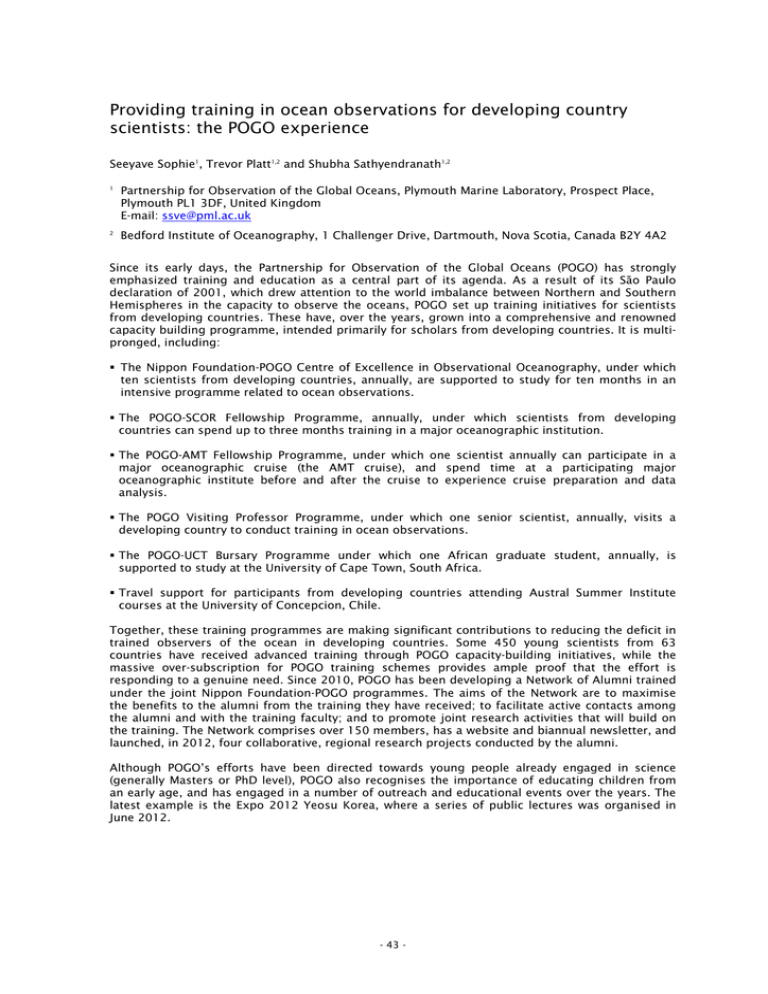
Providing training in ocean observations for developing country scientists: the POGO experience Seeyave Sophie1, Trevor Platt1,2 and Shubha Sathyendranath1,2 1 Partnership for Observation of the Global Oceans, Plymouth Marine Laboratory, Prospect Place, Plymouth PL1 3DF, United Kingdom E-mail: ssve@pml.ac.uk 2 Bedford Institute of Oceanography, 1 Challenger Drive, Dartmouth, Nova Scotia, Canada B2Y 4A2 Since its early days, the Partnership for Observation of the Global Oceans (POGO) has strongly emphasized training and education as a central part of its agenda. As a result of its São Paulo declaration of 2001, which drew attention to the world imbalance between Northern and Southern Hemispheres in the capacity to observe the oceans, POGO set up training initiatives for scientists from developing countries. These have, over the years, grown into a comprehensive and renowned capacity building programme, intended primarily for scholars from developing countries. It is multipronged, including: The Nippon Foundation-POGO Centre of Excellence in Observational Oceanography, under which ten scientists from developing countries, annually, are supported to study for ten months in an intensive programme related to ocean observations. The POGO-SCOR Fellowship Programme, annually, under which scientists from developing countries can spend up to three months training in a major oceanographic institution. The POGO-AMT Fellowship Programme, under which one scientist annually can participate in a major oceanographic cruise (the AMT cruise), and spend time at a participating major oceanographic institute before and after the cruise to experience cruise preparation and data analysis. The POGO Visiting Professor Programme, under which one senior scientist, annually, visits a developing country to conduct training in ocean observations. The POGO-UCT Bursary Programme under which one African graduate student, annually, is supported to study at the University of Cape Town, South Africa. Travel support for participants from developing countries attending Austral Summer Institute courses at the University of Concepcion, Chile. Together, these training programmes are making significant contributions to reducing the deficit in trained observers of the ocean in developing countries. Some 450 young scientists from 63 countries have received advanced training through POGO capacity-building initiatives, while the massive over-subscription for POGO training schemes provides ample proof that the effort is responding to a genuine need. Since 2010, POGO has been developing a Network of Alumni trained under the joint Nippon Foundation-POGO programmes. The aims of the Network are to maximise the benefits to the alumni from the training they have received; to facilitate active contacts among the alumni and with the training faculty; and to promote joint research activities that will build on the training. The Network comprises over 150 members, has a website and biannual newsletter, and launched, in 2012, four collaborative, regional research projects conducted by the alumni. Although POGO’s efforts have been directed towards young people already engaged in science (generally Masters or PhD level), POGO also recognises the importance of educating children from an early age, and has engaged in a number of outreach and educational events over the years. The latest example is the Expo 2012 Yeosu Korea, where a series of public lectures was organised in June 2012. - 43 -


